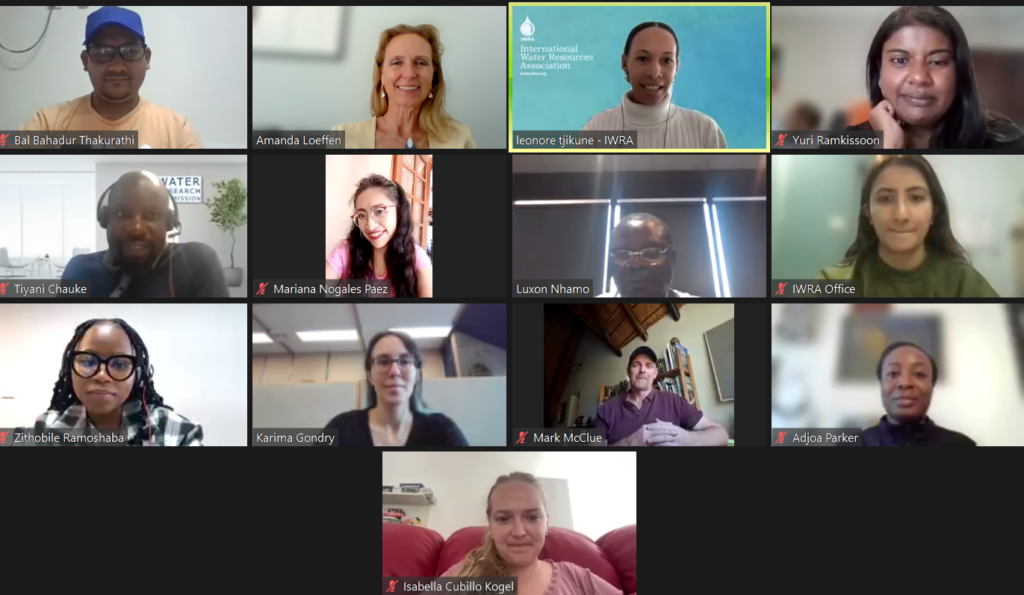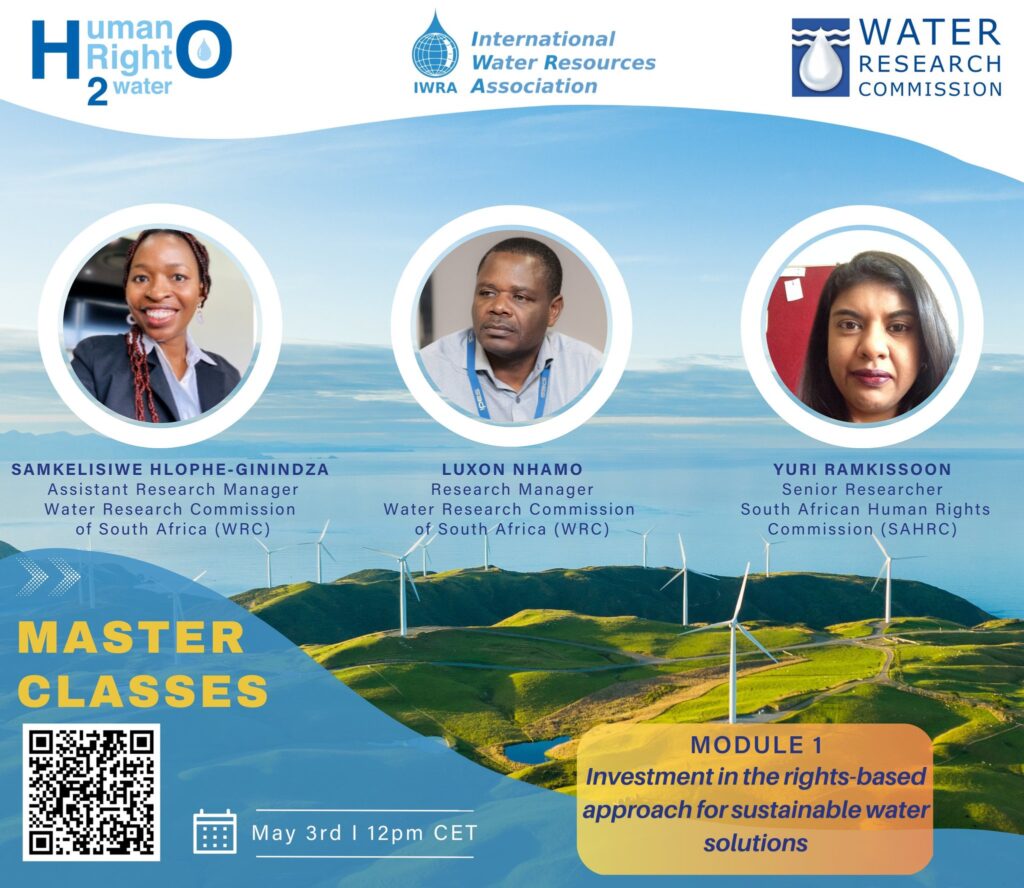
This first module of the Masterclass for Institutional Responsibility featured Yuri Ramkissoon and Luxon Nhamo as the lecturers in the public portion of the module, with a turnout of approximately 155 people. Our speakers focused on the investment in the rights-based approach for sustainable water solutions covering topics such as the SDGs, underlying issues, and transformative approaches to guarantee safe water and sanitation access. The lecture was then followed by a workshop for our members, facilitated by Luxon Nhamo and joined by Samkelisiwe Hlophe-Ginindza and Yuri Ramkissoon.
If you wish to take part of the interactive workshop for this masterclass you can learn about how to become a member here. Members that join the full version of our masterclass (lecture + workshop) will be able to receive a certificate.
Ms Ramkissoon presented the human right to water and the Sustainable Development Goals (SDGs) and how they are related. “SDG 6 calls on States and people to ensure availability and sustainable management of water and sanitation for all, ensuring that no one is left behind.” She emphasized the importance of having SDG 6 as a goal given the vulnerability that certain groups can suffer from lack of safe access to water and sanitation. She outlined the pressing challenges in Water Service Delivery, such as discrimination, poor governance, economic factors, urban-rural divide, and lack of political will.
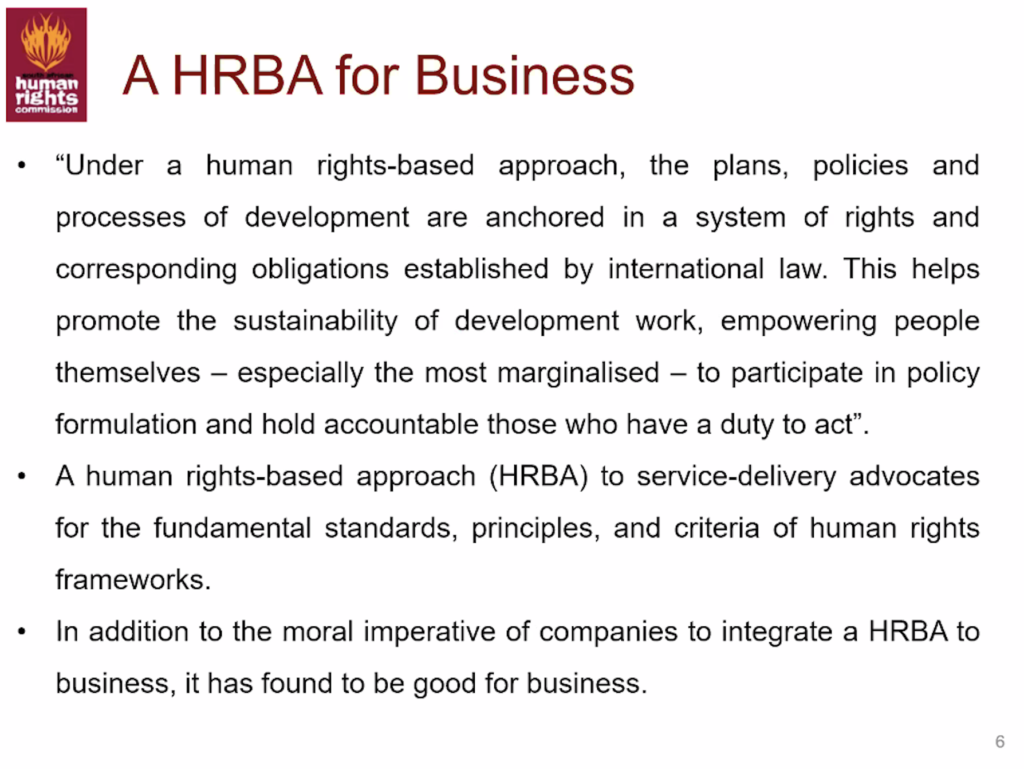
Based on these issues, it is important to have a Human Rights-Based Approach (HRBA) for business. “Under the HRBA the plans, policies and processes of developments are anchored in a system of rights and corresponding obligations established by international law”. This approach can help in many ways such as improving relations with stakeholders and employees; improving conditions; reducing risks; and enhancing corporate reputation and brand image, thereby being good for business.
Luxon Nhamo gave a presentation covering the global water security status, and according to his statement,
“most of the world’s population lives in water-scarce countries”.
There is evidently an uneven distribution of water resources, with 80% of the world’s population living in water insecure countries. Factors that explain the low levels of water security also vary hugely in nature. He highlighted some of the threats to water security, emphasizing the reality in South Africa. The issues can be related to the fact that there are divided communities, corruption, unemployment, poor public services, high disease burden, and poor education. He emphasized the need to focus on raising awareness, water resilience, and improving public-private partnerships (PPPs) to create mitigation and adaptation plans.
Watch the full lecture here.
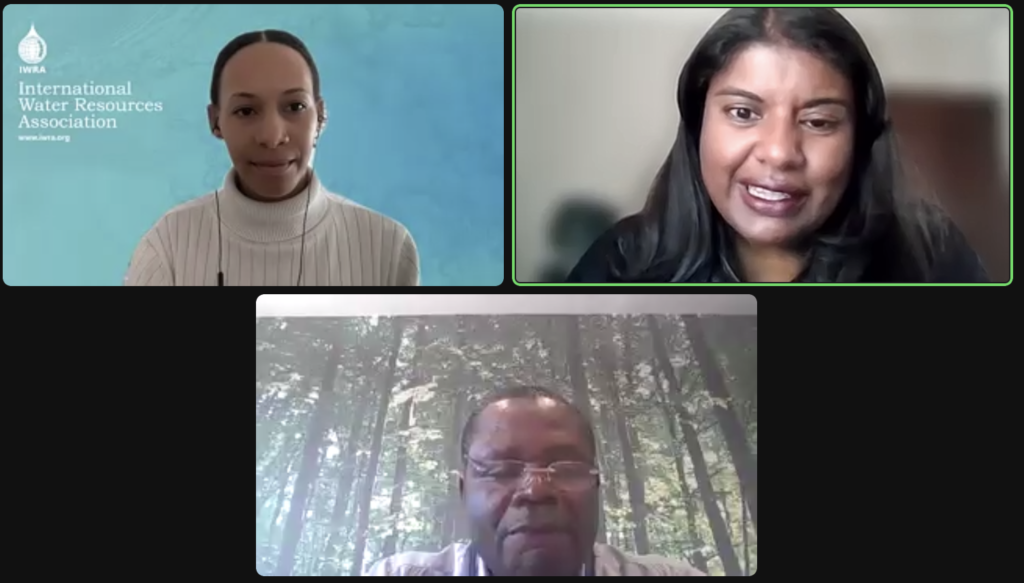
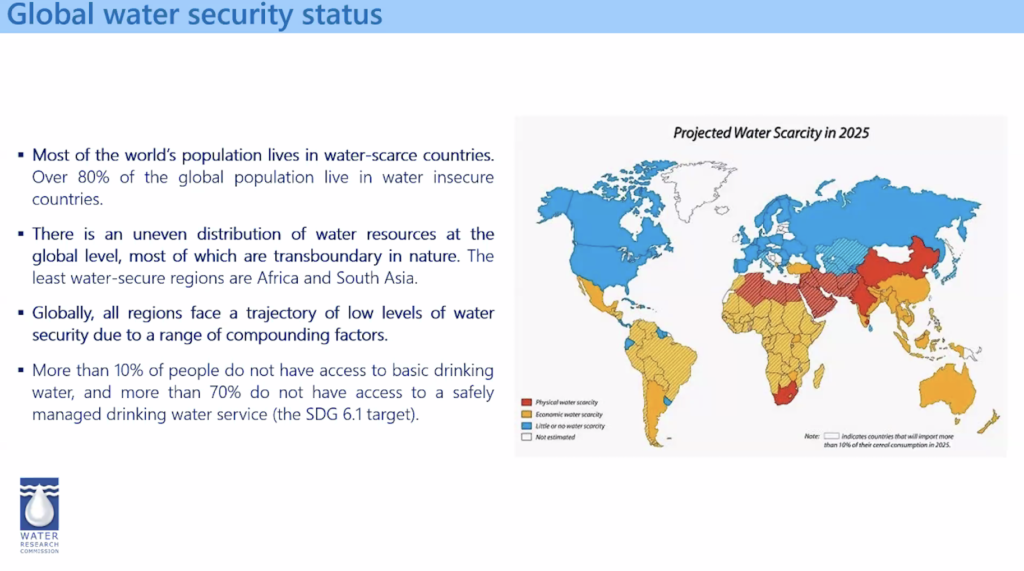
After the public lecture, the presenters hosted an interactive workshop for members of HR2W to explore the issues discussed in a more proactive environment. Mr. Nhamo facilitated a rich discussion exemplifying the situation of South Africa to highlight the necessary steps needed to hold institutions accountable and ensure safe water access. He explained that institutions and companies, both public and private, all have an important role to play, and that,
“the need for accountability to ensure safe water access is a shared responsibility”.
